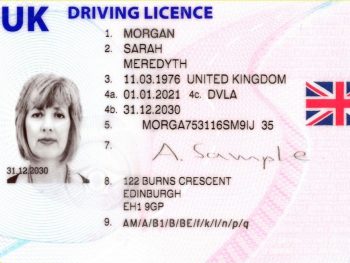DVLA licence delays over pandemic saw drivers lose jobs and income, find MPs
MPs on the Public Accounts Committee (PAC) have called for the Driver and Vehicle Licensing Agency (DVLA) to “get its act together” after data revealed three million licences were subject to delays over the pandemic period.

Committee recommendations include more effective setup of systems to identify and fast-track driving licence applications where the customer is badly affected by a delay
The select committee’s inquiry, based on evidence taken in November 2022, found complaints about the agency had greatly increased since April 2020 and there were submissions from people who described losing their jobs or income and being unable to start or return to work because of the delays. Others had difficulty arranging motor insurance or were unable to hire a vehicle or drive abroad.
Drivers with medical conditions were especially badly hit; of the nearly 40 submissions received, three-quarters were from customers with medical conditions requiring the DVLA to decide on their fitness to drive and customers said their mental health and difficulties with daily living worsened because of the delays.
Customers also reported huge difficulty contacting the DVLA during the pandemic.
The DVLA told the Committee that it had prioritised help to customers that it identified had been badly affected by delays. But PAC says calls to the DVLA from customers enquiring about their applications increased hugely over the pandemic, indicating that the DfT agency’s efforts did not resolve many customers’ concerns and issues promptly.
PAC said the Department for Transport (DfT) had taken a hands-off approach and failed to ensure DVLA was using modern working practices and up-to-date technology.
Although the DVLA changed the law to postpone driving licence renewals, investing in new buildings and additional staff, and making more services available online, delays persisted for around two years.
Dame Meg Hillier MP, chair of the Committee, said: “The pandemic inevitably made operations more difficult, but the DVLA and DfT were not prepared for the challenge of keeping essential driving licence services running and especially not for those who needed it most.
“Some of the DVLA’s operations are antiquated, it lacks a comprehensive strategy for modernisation and on PAC we’re unconvinced they’re more ready for the next crisis. When that does arise it will again be the most vulnerable customers – people for whom driving is a lifeline – who are worst hit. That’s just not acceptable. The DVLA has to get its act together.”
MPs have made a series of recommendations, including more effective setup of systems to identify and fast-track driving licence applications where the customer is badly affected by a delay, along with improved communications – both with customers and stakeholders such as MPs.
The select committee also said more work was needed to increase take-up of the DVLA’s online services. While the agency is keeping a paper option available for those unable to use online services, its figures indicate 60% of customers who apply on paper could have applied online. PAC also notes that in the periods during the pandemic when paper applications were receiving substantial delays, almost all customers without notifiable medical conditions who applied online had their applications processed within three working days.
Other committee findings include insufficient attention during the pandemic to those driving licence service areas, such as medical notifications and its call centre, where staffing challenges led to the most detrimental consequences for customers. During Covid, the DVLA prioritised services with the highest volumes of applications or where it believed processing delays would cause greater problems, such as its services related to vehicles, knowing that this would take resources away from its driving licence services.
PAC has now called for the DVLA and the DfT to set out lessons learned from the “driving licence backlogs saga” and their responses.
The select committee has also said that the pandemic exposed weaknesses in some of the DVLA’s other operations. Currently, most staff working on driving licences cannot work remotely because of data security risks and underlying technological challenges, which the DVLA said cannot be easily remedied. Expressing concern that the agency isn’t ready for any future crises, PAC has urged the DfT and DVLA to work together to set out, by the end of 2023, a strategy for how the DVLA will re-engineer and modernise the driving licence process, over the next three to five years.
The DVLA has responded to the inquiry, saying that it’s back to normal processing times across all of its services.
A DVLA spokesperson added: “All standard paper applications were back to normal turnaround times by May 2022.
“Our online services worked well throughout the pandemic and for the vast majority of our customers, their dealings with DVLA would have been trouble-free. 98% of people who applied online received their driving licence within just a few days.
“During the pandemic, we issued more than 24 million driving licences, the vast majority of which were issued within three working days.”
A National Audit Office report in 2022 identified that the DVLA cleared the backlog of standard paper applications after the first year.
There are also indications that medical applications were delayed during the pandemic by the NHS putting priority on treating Covid patients, while medical applications requiring information from a driver’s doctor or the driver themselves can’t be processed until such information is received.














